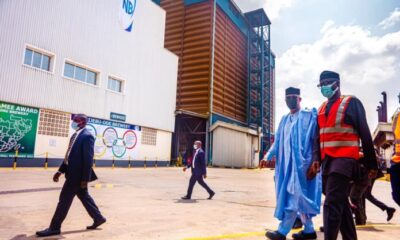Nigerian professor of political economy and management expert Professor Pat Utomi has called for diversification of the economy. He made this call during the launch of the Rebuild Nigeria Initiative (RNI) in Abuja.
He noted that despite promises by successive administrations to diversify the economy, the country’s overwhelming reliance on crude oil has still continued to persist. According to him, failure to diversify may spell disaster.
He said: “The word ‘diversification’ if you do a content analysis, must be the most used word in budget broadcasts in Nigeria. For more than 30 years I have heard of promises to diversify our economy away from dependence on crude oil. I mean, I have heard it so many times that it is like playing in my head.
“Unfortunately, we’ve done very little in that direction and it has assumed a new urgency because the world is going through an energy transition. We have forgotten that crude oil is a finite resource. In 10 to 12 years from now, as close as that is, few cars will run on petrol. We’ve to put our hydrocarbons endowment to other kinds of uses.”
He also urged the federal government to learn from countries such as Botswana and other wealthy nations that have made significant investments in their youths.
While criticizing the government for failing to invest in the empowerment and development of youths, Utomi stated that youths are the main drivers of any country’s economy.
He emphatically stressed that Botswana became the fastest growing economy in the world between 1968 and 1980 because the country invested revenue realised from diamonds in its youths.
“This year, about $4 billion of investments are expected to come to Nigeria’s tech space which is dominated by youth.
“They are the ones holding the economy right now, they’re doing it in Nollywood. They’re doing it with the music industry. Just imagine that we put a cost on them, that we treated them like the kings that they deserved, and really deserved to be treated.
“Imagine, If we had invested massively in their education and put other things in place for their things will work well. We’ve got to stop politicians from taking advantage of this easy money that comes into the treasury. We should do things like Botswana did. Botswana, from 1968 to 1980, was the fastest growing economy in the world, essentially from diamond exports.
“What did Botswana do, they saved most of that money and put it in a future fund because they realise that all Botswana’s born 200 years from now have as much as share of it, as they will live today. And they continue to produce. So, we’ve not done that in Nigeria. What we have are very ambitious elites that’s rushing to buy private jets”, he added.
Known for his philanthropic works and activism, Utomi has been lending his voice to a better nation over the years. Investors King recalls the personality’s input on the Apapa Gridlock’s situation, his voice on Nigeria’s Recession, and many more.

 Forex2 weeks ago
Forex2 weeks ago


 Naira2 weeks ago
Naira2 weeks ago
 Naira4 weeks ago
Naira4 weeks ago
 Billionaire Watch1 week ago
Billionaire Watch1 week ago
 Company News4 weeks ago
Company News4 weeks ago




 Naira2 weeks ago
Naira2 weeks ago




 Naira1 week ago
Naira1 week ago




 Naira4 weeks ago
Naira4 weeks ago






















